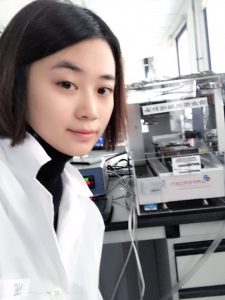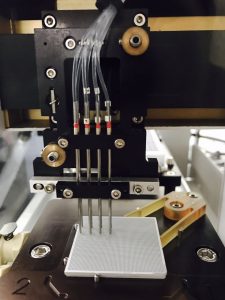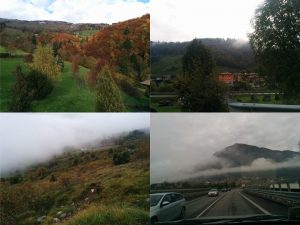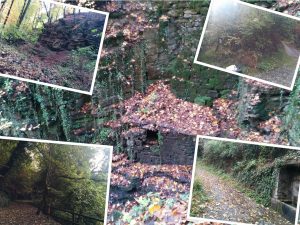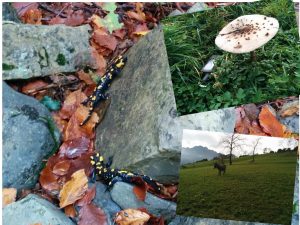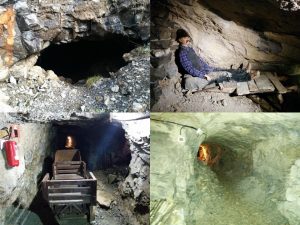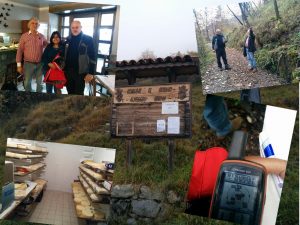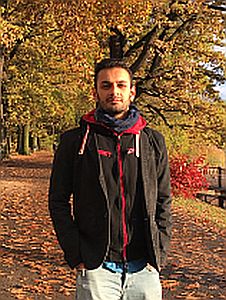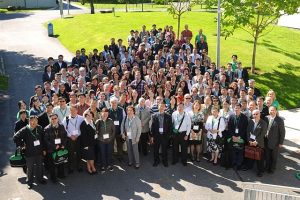
Meet the Researchers – Panos Kirmizakis
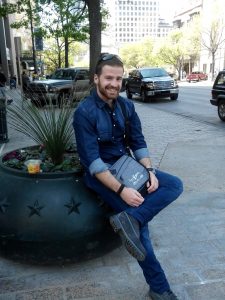
Born and raised in Greece. I graduated in Environmental and Natural Resources Engineering in Technological Educational Institute of Crete, in Greece, 2014. After that, I embarked on a MSc programme at the same Institute, graduating in October 2016 with a Master in Geoenvironmental Resources and Risks and a written thesis in Laboratory scale application of Spectral Induced Polarization (SIP) method for environmental monitoring.
After my studies in Greece, I moved to Belfast for the REMEDIATE project. My role in Queen’s University focuses in geophysical approaches in site assessments. I will try through fully controlled laboratory experiments and larger scale applicationσ in contaminated sites the utility of geophysics in environmental monitoring.
I will carry out most of my work at Queen’s University Belfast which is ranked in the top 200 universities in the world according to the 2015-2016 QS World University Rankings. Queen’s is much more than just a place for work as it is located in Northern Ireland; a place is not probably the first destination that someone will think about vacation, but it is worthy to visit. The earth of joyful “ginger-heads”, good drink and the beautiful nature. And if you do not believe me just take a walk along the river, where the eye cannot find the end and the soul rejoices seeing seagulls flying above your heads.
http://www.thecollegeview.com/2017/03/08/remediate-remedy-polluted-soil/
A done list

1 Dilute the 99 arrived As-primers; 2 Use Primer-Blast to check the specificity of 99 As-primers; 3 Use AlleleID to check the parameters of 99 As-primers; 4 ARGs HT-qPCR of the CCA samples; 5 ARGs HT-qPCR of the Tellus archived soil samples; 6 Order the oligo of 99 targeted fragment; 7 Regular PCR with 99 As-primers; 8 Sequencing of PCR-product of 99 As-primers; 9 Pig manure manuscript.
That’s a recent to-do list. I like to start every day with writing and checking my list, because it’s one way for me to clear the fog so I don’t miss anything important and can quickly move into “working” status.
However, there was a lot on my plate: faced with this long list of tasks, even imagining how I should manage my time to shorten it to a more refined list made me feel tired. “One by one, one by one, just pick one and focus on it first”, I told myself, and dragged my body into the lab with my tired “soul”.
Days passed. One day I found, not for the first time, that I couldn’t fall asleep, and I was staring at my to-do list. I suddenly realized the to-do list is not only helping during work time but also “helping” me after work! I couldn’t help wonder if there is a so-called work and life balance, especially for a fallen leaf who is far away from its root.
By talking to friends and colleagues, I realised I am not the only one who has this problem, and I found a solution. “There are always more things waiting for you to do, you should think about what you have done instead of what you haven’t done.” That day, I made a done list after I finished work:
1 Ordered the primers; 2 Centrifuged and diluted the primers; 3 Parameter check; 4 ARG HT-qPCR of CCA samples (1/2); 5 Conference registration; 6 Targeted fragment collection.
After this, I had a very good sleep…
To-do lists and done lists are like yin and yang. A to-do list can direct you to focus on the tasks, and a done list can motivate you in a happier and more positive way, and can be used to review the day and give you a chance to celebrate accomplishments. PhD life can be fulfilling and challenging. Balanced self-management provides comfort for fallen leaves waving and dancing in the wind. From that day on, every time I feel overwhelmed, I ask myself before I finish work, “What is on your done list?”
One step at a time
While mapping locations of samples on my computer, I found myself sitting and pondering the last sampling trip. I have been on many trips in the last year, for collecting mining waste dotted over mountains, for working with soil near the waste, and to collect water samples (to find out if the water was using perseverance and hard work to slowly dissolve the metals around it and carry them large distances, or if the metals were loyal enough to remain attached to the rocks and not fall in love with ions in the water).
Sampling feels different in different seasons, and this was first time I had done it in the autumn. I went with Giorgio and we were joined by Scolari (an employee from Comune di Gorno, Lombardy). We were there to sample water springs and water from mining tunnels that would reflect the level of metals in the background and in contaminated water.
When I got out of our car, I could see colours in the mountains that were not evident when I had come earlier in the year. Apparently it was views like this that made the author Jim Bishop write “Autumn carries more gold in its pocket than all the other seasons.”
How meticulously nature paints itself. When I was taking pictures of the sample site, I could not stop myself taking photographs of mountains and the paths decorated by leaves.
The ecstatic feeling soon disappeared when I started walking in the mountains to collect samples. The leaves and water made some of the locations slippery and so scary that we were all walking like tortoises even with proper shoes. Leaves that hide holes beneath them; leaves on plants and around that hide the water source itself. I kept on repeating to myself “Slow and steady wins the race, slow and steady wins the race” as if it was only this hymn that was saving us and our instruments from falling down; and we kept on walking.
The area had a plethora of flora and fauna: we came across cats, dogs, horses, big and small mushrooms, a donkey, salamanders, goats, and cows grazing on surrounding fields, appearing here and there and sometimes walking with us until either of us changed path, as if they were keeping us company in our work that could lead to the betterment of not just human life but also the local environment, perhaps thinking ‘How weird these human beings are, they do not know how to walk properly even with shoes!’ or maybe just looking at us and getting busy in their chores again.
At this point someone reading this might wonder if I was collecting samples or taking photographs. Where are the samples? Where are photos of sampling locations? In case you failed to notice, look again at the pictures. The team walked to long narrow tunnels used for underground mining of zinc and lead.
The tunnels have their own stories on how men used to drill along the tunnels and cut the rocks, and women used to segregate the rocks with minerals from other rocks. Tunnels that silently roar ‘Oh you! You are also one of those who want to have everything, but do you really stop for a moment and try to imagine the effects of mining on workers, the backbreaking work and the precision through which it passed; the chemicals that were used to wash those rocks?’ How neophiliac and shortsighted we really are: we look at something, buy it, use it, and forget it. It cannot go on.
Someone like me must come and show the pictures, trigger the cognitive process again, shout if we are not paying heed. No matter how much we try to overlook our footprints and try to remain caged inside our own comfort zones there will be something which will come in different forms in front of us. Therefore, we need to find answers for our own benefit, for ourselves to have peaceful sleep in night. We cannot leave all kind of marks on earth and go on Mars or the moon to live happily ever after! I was experiencing centuries in a few minutes and using knowledge of every discipline I have come across. History, chemistry, geography, geology and environmental engineering were all in my head.
Then I suddenly remembered words of wisdom from my mentor Professor Domenico De Luca: “Neha, passo dopo passo [step by step]! When you get emotional while you are doing research, remember just one mantra. Take a deep breath and move forward with just one step. Do not think too much and keep on taking every small step you can.”
After all the conversations inside me stopped, I took the smallest step I could take at that moment, and continued measuring electrical conductivity, the temperature and other physiochemical qualities of water.
Here are some bonus pictures from the sampling trip. Do not forget the lesson… ONE SMALL STEP !!!
January 2017 meeting in Dublin
Thanks to Suman for making this video using Quik (click on the link to watch it)
Meet the Researchers – Suman Kharel
“If you can’t be in awe of Mother Nature, there’s something wrong with you.” – Alex Trebek
I was born in a peaceful country: Nepal, as often said, a utopia of natural beauty. I grew up in the foothills of the Himalayas, an area of marvellous scenic exquisiteness. Nevertheless, our natural surroundings are under threat from serious environmental challenges. There’s a necessity and urgency for cognizant use of natural resources, protecting the environment from degradation and elimination of pollutants present in the environment. Our biological nature demands clean air, water, soil and energy, and biodiversity for our good health and well-being. This is why I joined the REMEDIATE project as a Marie Curie Early Stage Researcher in TE Laboratories Ltd and Dublin City University. My research objective focuses on the development of innovative methods to monitor organic contaminants in soil and water. I am currently working in the R&D department of TE Laboratories, surrounded by very friendly and supportive colleagues.
I completed my undergrad in Microbiology and Chemistry from the Tribhuvan University, the oldest and most renowned University in Nepal. After my degree, I moved to Germany to pursue my Masters in Water Science in the University of Duisburg Essen. My Master thesis was based on the development of an analytical method to assess Triclosan (a biocide) and its methylated products in soil and earthworms from biosolid amended agricultural sites and the German Environmental Specimen Bank.
I am a globetrotter and inverse paranoid. I love listening to music, reading books, doing sports and having get-togethers with friends whenever I have spare time. Finally, I would like to say that the opportunity to work within the elite research group of REMEDIATE, juxtaposing with an emphasis on networking & training, plus independent & extensive research in a specialized area, has been a special privilege to me.
REMEDIATE Outreach in action
Sabrina Cipullo, the Early Stage Researcher based at Cranfield University has written about recent opportunities she has had to share her research with experts and the general public.
Thanks to Sabrina for sharing her thoughts!
Turkey experience post
Coren Pulleyblank, one of the REMEDIATE ESRs, was due to attend a conference in Turkey earlier this year, and flew into the country on the day that a coup d’état was attempted. Thanks to the kindness of strangers, Coren stayed safe and was able to leave. We’d like to thank Coren for sharing her story about what must have been a distressing time for her and those who knew the situation she was in.
October 13th 2016
It’s only a few days until the rescheduled 2016 EUROSOIL conference opens in Istanbul. This week, I have been receiving a wave of reminder emails similar to those sent in early July, just before the attempted coup d’état in Turkey forced a last-minute cancellation of the original program. Do Not Forget! reads the subject line of today’s email, it contents reminding us to bring our Gala tickets, that lunches will be served in building A, coffee and cookies in the exhibition area. As in July, the lineup of speakers is looking good, but this time I notice my heart rate quickens a little when I see Dr. John Ryan listed as Thursday’s keynote speaker.
I met Dr. Ryan once before. He visited our lab last spring. That day, I’d only managed a quick hello between my teaching duties, but I recall our postdoc describing him as an understated, conscientious sort who had seen much more of war and humanity than would be expected by his job title as a soil scientist. After the dramatic moments that unfolded earlier this summer, and my own experience with those events, it seems fitting that he will be there. I’d like to meet him again.
Choosing soil science for graduate studies and a career was, for me, much more than a means to making a living; there was a broader almost spiritual element to it... As I travelled, I came to appreciate the global diversity of soils…. Soil and water are inextricably linked. At ICARDA in the historic Middle East region, I saw how soils dictated the rise of ancient civilizations, and how civilizations fell with the abuse of soils John Ryan - See also https://dl.sciencesocieties.org/publications/csa/articles/58/5/4[C1]
I remember my heart quickening too, two days before the same event first scheduled this summer. It had been a tiring week, but that Friday, I would head to my first international soils conference. I’d packed the turquoise blue camping backpack I’d used during fieldwork the Alps – it felt appropriate for this adventure – and by lunchtime before my flight, I could feel the excitement taking hold in my stomach. I’d wanted to visit Turkey since I was about fourteen, first registering the names of those magic places that had seen so much history, so much human thought. A few graduations older now, the geomorphologist in me was excited too, thinking about the incredible landscapes I’d encounter hiking with my Turkish-Canadian friend after the conference. It didn’t diminish my anticipation at all that first I would be learning from top scientists in my field. I felt lucky.
July 15th
I find travel itself exhausting. Our flight lands sometime between 10 and 11 pm. The passport line is ages long; I’ve already been standing in it for at least an hour and a half, slowly shifting the weight of my backpack, vaguely scanning the faces around me, staring vacantly at the unavoidable Verizon mobile advertisements, wondering when my eyes will bug out of my head or my feet will fall off. I feel distantly glad I haven’t asked the hostel staff to pick me up, since they would be waiting the eternity as well, but the sensation is counterbalanced by my growing concern that transit might not be running at the end of it all. I am trying not to torture myself by thinking about being safe in bed at last, sleeping in the heart of the Old City.
With only about 10 people ahead left to be processed, an Irish man in front of me turns anxiously to his wife “There is a coup” he quietly announces, “Soldiers are trying to take the airport. We have to stay inside.” Seeing me reach for my phone, he tells me social media is shutting down. I manage to see a few WhatsApp messages from colleagues that have slipped in in time, telling me to be careful, to stay safe.
We joke a little about how ridiculous it seems that we’ve stumbled in at just this moment in time. The thought crosses my mind, ‘Well, this will top some of Bill’s stories.’
I’d loved sitting in Bill Mahaney’s class, Geomorphology of Sediments, listening to this socks and sandals professor wax near poetic about the virtues of scanning electron microscopy and particle size analysis. He taught us that soils tell stories. And he told us stories too, about science, about stellar minds and people who faked their data, about techniques that mountains of research had been based upon and which were later discovered to give false results. He told us about treks up Mount Kenya, about the importance of shoring the holes properly, and safety training in Antarctica. Once, he was nearly arrested in Chile because someone thought he’d stolen their cow, and another time guerrillas broke into a pub in the Andes and he handed a flask to another man hiding under the table. At a conference, one researcher shot another, or something like that. Although not everyone appreciated his digressions, to me he told science like it was something not separate from life, like it was something to live with.
The man’s family is going on holiday and they won’t make their connecting flight. As he moves forward to present to the border official, I wish him luck getting to the resort. I suppose I just don’t know what else to say.
July 16th
When I get through passport control, I realize I’ve been expecting some sort of organization on the other side, some instructions or guidance – but there is none.
A woman is yelling at a security guard, and I pass as quickly as I can. Mostly the airport is quiet, tense but calm. Some people seem to be leaving, and it’s hard to tell if the action might be over. I spot some people sitting in a car rental booth watching a television. I ask them if it is ok to go, and through a few broken sentences they say no, better to stay inside.
I withdraw some lire from the ATM and buy extra food, a bottle of water, and a coffee. I wonder what time of the morning the shop will run out, not wanting to take too much from others or too little for myself. There are no seats left, so I choose a spot on the floor next to a pillar and begin to repack my small bag, making sure I know where everything is. I smile a bemused internal smile at the people who have had the foresight and luck to get the leather massaging armchairs for the night. Stress reduction seems like a good idea.
I still don’t know what started the wave of people running – whether someone saw the soldiers in the wing, or someone panicked at a noise.
My coffee spills across the floor as I grab my things and move with the current of others, away from whatever terror must be to our right. Expecting the firing to start any moment, a few of us scramble into a cellphone kiosk, looking for some small shelter in what is largely an empty hallway. Something tells me to keep my camping bag on, almost as though somewhere I’ve been trained for this. Make yourself a little bigger, keep any padding on, everything together, hold onto your resources … was it polar bear safety in Churchill? Or something else? I pull at a heavy stand of cellphones, moving it just far enough to stick my head in the space between it and the wall. My head in the crack, I find myself thinking, “apparently this is something I do”. I think of my aunt, fighting cancer at home.
Not long after, I move to join a group of people behind the larger cash counter. It doesn’t really seem safer, but I decide to stay there; either we will become statistics tonight, or we will not. At one end of the counter, there is a woman screaming. The manager is trying to calm her. On the further end, I crouch next to a woman who seems about my age. “Do you speak English?” I ask.
I’m sure it is only seconds before she responds, but it seems like minutes. “Yes.”
We talk, or whisper, or something for a few minutes, before we decide it is calm enough to try to move somewhere safer, upstairs. I learn about her work; she asks me about mine. I tell her about the conference, how I’ve wanted to visit Turkey for so long. It is the kind of conversation any international student is very accustomed to having, except it is interrupted with anxious questions of safety. Should we stay or go? Where are the airport staff? Who would know? I tell her I am Canadian. She asks me if I know Alberto Manguel.
A confused sensation washes over me – a mixture of embarrassment, humility, gratitude, luck. I have heard him speak once, Alberto Manguel, when I was a student at the University of King’s College in Halifax attending the opening Massey lecture of 2007. For an evening, his kindhearted thoughtful voice had weaved magical reflections about language, uncertainty, story, and trust.
You enter a library like you enter a forest. There is a sense of order in the rows of books as there is in the rows of trees, but you don’t yet know what that order is. Someone has placed the books there with a certain method in mind, but you don’t know what that method might be. A private library is the autobiography of its reader, a mirror of that reader’s mind, of his tastes, prejudices, experience, and desires. Alberto Manguel, The Library at Night
How could it be that in the middle all of this, at this time of the morning, on this side of the world, someone I’ve never met before has just spoken to me in my own language and named this particular Canadian thinker?
A lot of my memory of the night is visceral, and even now it is hard to put on the page the knots in my stomach, the tension that imbued those moments. My brain was in fog and yet at the same time a kind of clarity permeated everything, almost like a hyperawareness that uncertainty was the truth of the moment. It was impossible to really know anything, so any decision might make sense. “None of us can know for sure, so you have to choose to trust something.”
We escaped the airport together, moving out into the dark air, out of the way of what she was sure must be the next bombing target if there was to be one. I hadn’t seen the tanks she’d seen out the windows at the other side of the airport, or the soldiers in the other wing. Although she did, I didn’t know the President would be flying in.
But in the roads around the airport, I heard the mob, the gunshots. I saw the national flag being waved as people set up a road block and wondered what it represented that night, in that moment. I heard my new companion speaking words I did not understand to three men in the one car that drove past. I knew she was negotiating the help we needed.
We climb into the backseat of the car and I duck my head low, fearful of the idea of stray gunfire. The red sign of the Wow Airport hotel stands out in the darkness beyond the window. It is the one landmark that speaks any familiarity to me, as the conference is supposed to start there in two days. I won’t be able to get there tonight. The driver turns to look us in the eyes as he speaks, as though to calm us even though I don’t understand a word. It is becoming clear none of the roads will give us exit – everything is blocked. A woman outside carries a baby through the same night we are trying to navigate.
The car stops again, and we get out. The only way out is to cross a pedestrian footbridge over the twelve lanes of blocked highway and shouting people. Somehow, my companion still has her wheely suitcase, still somehow looks professional pulling it along in her work clothes. As we cross over the bridge I think of the camera buried at the bottom of my pack. One of the men from car comes with us, to help us feel a little safer and to go ahead to see if there is space for us in the hotel on the other side. There is, but he takes his leave before we can ask his name.
Time is strange in these recollections. There is a sort of vaguely linear version of all that happened, but the timeline doubles back on itself, contracts and expands in strange ways when I think on it. Things which lasted only seconds are longer in my memory, and other things have already been forgotten.
There was the hotel room, the attempt to shake off some of the night with a cold shower, the tongue-in-cheek but sincere offer of tea and Turkish hospitality. Watching the Turkish news, not understanding a word of the yelling. Watching the English BBC news and not understanding a word of the calm. The attempt to sleep. The first jet that seemed to blast us out of bed. The work, moving mattresses onto the floor, towards the centre of the building, away from the windows. The jets that came again and again. My friend…is that what she was now? vomiting in the bathroom.
At some point in the night – was it between the jets, or after they were gone? – I try to calm myself, breathing deep, listening intentionally to sound of cars moving on the highway outside our window, the road now unblocked. I know that sound. As a kid, I’d curl in my parents bed and listen to tires on the pavement, watching the headlights from outside make their angular sweep across the bedroom ceiling. I tell myself: it’s ok, whatever happens to us, physics will be ok.
Eventually around 6am I finally fall asleep.
We wake an hour or so later, sitting up on the mattresses on the floor, the trashcans still pulled next to us there for if we felt sick, the air conditioner still dripping. I half-jokingly hold out my hand for a handshake and say, ‘Hello, nice to meet you. My name is Coren, what’s yours?’
She tells me to come with her, to stay with her family on the Asian side of the city. It is uncertain how the next days might unfold, what the aftershocks of the night might be. The conference has been cancelled. It is probably not safe to go to my hostel alone. They have a flat and there is a little office, a little library, with a fold out bed, and I can stay there until I know what to do.
Her uncle picks us up and drives us to the ferry – the bridges are still mostly blocked after the fighting the night before. We walk up towards the ferry station, and she points to a pile of rubble: ‘it used to be a nice little shop’ she tells me. Shards of glass glimmer at the edges of the pile, but there is not a single piece on the sidewalk; already, someone has carefully swept it clean.
The Bosphorus sparkled a turquoise I cannot forget.
Her mother makes soup. The whole family comes. I don’t understand most of what was is said, but I understand I am welcome. My friend explains that I am an academic, that I study soil. Her father proudly shows me his African violets growing in pots around the living room.
In the days to follow, Turkish citizens with green and grey passports are denied exit, and soon after, other academics are told to stay put. My Turkish-Canadian friend who I was supposed to meet after the conference debates coming to Turkey after all. His father, a mathematician in Ankara, is no longer allowed to leave the country.
It isn’t clear if it is safe to move downtown or back to the conference hotel. The roundups playing out on the news are sometimes accompanied by shots fired. The cheering mobs of citizens in Taksim Square at night seem like they could flare up with any wrong move.
In these days, my new friend takes me to the local market, and I try green hazelnuts. We visit the Freedom Park. Then the big Prince’s Island. We try to read each other’s fortunes in the coffee grounds. We talk, and don’t, about what is happening. Internally, we are still shaking.
I don’t understand most of the news. It seems endless, and though I don’t understand the Turkish, I also do not trust the English language Western media to tell us what we need to know. One night we turn off the news for a while and my friend searches for videos of Carl Sagan.
The Earth is a very small stage in a vast cosmic arena. Think of the rivers of blood spilled by all those generals and emperors so that, in glory and triumph, they could become the momentary masters of a fraction of a dot. Think of the endless cruelties visited by the inhabitants of one corner of this pixel on the scarcely distinguishable inhabitants of some other corner, how frequent their misunderstandings, how eager they are to kill one another, how fervent their hatreds. Our posturings, our imagined self-importance, the delusion that we have some privileged position in the Universe, are challenged by this point of pale light. Our planet is a lonely speck in the great enveloping cosmic dark. In our obscurity, in all this vastness, there is no hint that help will come from elsewhere to save us from ourselves. Carl Sagan, Pale Blue Dot
The family has bankers, engineers, doctors, translators, literary critics, and musicians. The older generation seems exhausted. The younger generation, tired too, uncertain, anxious, about what their country, their future might become. I wonder how it can be that I’ve stumbled into a family that seems in many ways so much like my own. And how it can be, that with so much in common, that with a different crest on my passport I will most likely leave these questions behind.
July 19th
With flights now cancelled into and out of the US, and a protest planned for the American Embassy, I decide it is time to go. I eat my last dinner with the family, special dumplings with yogurt and a red sauce. Her father brings me baklava, because I cannot leave without trying some. Her mom tells me to return, and next time, to come to Mt. Ida with them, where they have a summer home near the Aegean. Maybe I can use my science and help their plants grow. She hugs me and tells me she will come to my wedding – a sign of our connection, my friend who has translated the sentence explains, since I have no idea of when I might find someone to marry.
July 20th
My friend comes to the airport with me so we can face the return together. We take a selfie at the cell phone store we met in and look at the faces of the shop staff to see if they are the ones who were behind the counter with us.
It was hard to let go, to let myself lose sight of her as I passed through security. In the top of my pack there was a small plastic bag she’d thrust into my hand before we’d left the flat. “Mountain Oregano’ she’d said, ‘from Mt. Ida’. Somehow, it seemed appropriate to have as my one souvenir, something that had managed to grow fresh in the soil where Olympian gods had sat deliberating the Trojan war, casting out the fates of individuals and armies.
October 13th
Scientists often work in situations of danger. Some of us leave within a few days, or like Bill, at the end of the field season. Others, like John Ryan, stay as long as they can, working, training others, building human connection.
But still others have no option to leave.
Shortly after I returned to Dublin, someone forwarded me a preface that had been printed at the beginning of the Turkish Journal of Enterology, explaining the political situation. With over 240 dead, and 20,000 arrested at the time (the numbers are now more like 70,000), it seemed strange. Was this a declaration of allegiance to the government? Was it a warning to other academics on what the safest story should be, was it meant as protection for the articles within, or to simply offer information in what is an incredibly confusing narrative? And why was it at all serving as the foreword to a journal on stomach medicine?
What happens to science and knowledge in times of distress or political isolation? What happens to the engineers, the doctors, the readers, writers, and musicians? How much do we shrink, grow, disperse, or come together? Who has to stay quiet? What keeps being learned behind rubble walls? What will be dropped and forgotten? Where will my friends be? And what small secrets will be remembered, rediscovered, when time turns in that direction?
A library works differently at night. At night, books disappear into the shadows. Time melts, and space becomes reduced to the tiny realm of your desk. Every choice we make, every library we set up, carries in its shadow the library of books not chosen, rejected, banned, ignored, burned. War can destroy a library, but its rebuilding becomes then a symbol of something essential in human kind. Alberto Manguel, The Library at Night
There are details of my experience in Istanbul that don’t fit easily into the story. The texts I managed to get once I could turn on my phone again: from friends giving contact info for any Turkish people they knew. Some of these strangers also messaged me directly, offering food, water, help. There was the convoluted battle with my cellphone company and my friend back in Ireland who managed to get into my account and put 80 euro on it so I could maintain contact with home. My family, who told me they trusted me. Losing my wallet. The cat called Night. Details of frustration, philosophy, kindness – these spill like sand falling on my analytical balance pan, lost individually, but adding up to the weight of the whole experience.
Each time I tell this story, it is different. This time, I have purposefully left out names and the thoughts of others I encountered, though I hope they know the gratitude I feel that they shared the moment with me, and that their names and thoughts and voices mark the soft edges of how I remember them. Perhaps there will be as many tellings of my own as there were people in the crowds that first night, my own window view so clearly only one of many. As with science, the interpretations we offer shape what we can share with others. The stories we make about what we did, tried, imagined, ignored, understood, and believed, shape what science will become, and how we understand the world we live in.
Unfortunately, I won’t be able to attend the conference rescheduled for this week. But in a strange way I feel the journey last July has connected me more closely to the community I would have met then, to the work we do, and the planet we call home.
Look again at that dot. That's here. That's home. That's us. On it everyone you love, everyone you know, everyone you ever heard of, every human being who ever was, lived out their lives. The aggregate of our joy and suffering, thousands of confident religions, ideologies, and economic doctrines, ….every mother and father, hopeful child, inventor and explorer … every saint and sinner in the history of our species lived there -- on a mote of dust suspended in a sunbeam… It has been said that astronomy is a humbling and character-building experience. There is perhaps no better demonstration of the folly of human conceits than this distant image of our tiny world. To me, it underscores our responsibility to deal more kindly with one another, and to preserve and cherish the pale blue dot, the only home we've ever known. Carl Sagan, The Pale Blue Dot
Authors note: I’d like to thank Judith Kalman, Lauren Smee, and other friends who provided feedback on earlier drafts of this piece.
Conference report
Sabrina Cipullo (a REMEDIATE Early Stage Researcher) went to a conference in Galway, Ireland:
REMEDIATE students and supervisors from the REMEDIATE project went to the first joint international conference of ISEH 2016, ISEG 2016 and Geoinformatics 2016 at National University of Ireland (NUI), Galway, Ireland during August 14–20, 2016. This conference was a great experience for all of us, listening to great talks and world-class speakers. It was a good opportunity to showcase our research, and meet people working in related areas of environmental science, geochemistry, geoscience, and other disciplines.
Tatiana, Diogo, Neha, and myself, in addition to Dr Siobhan Cox presented our work at the parallel session on “Contaminated land with IBN” chaired by Dr Rory Doherty. Peter and Coren presented a poster, and Coren was awarded best student presentation cash prize! Well done!
This was a good moment to share within the ESR REMEDIATE group but also to add a few more friendly faces to our network and to share conference moments, the sunny day and few drinks with Maria Nevin, Aisling Cunningham, Alessandro Singlitico, Emanuela Pignotti, and Ellen R. McGrory.
We also had the chance to explore NUI Galway with beautiful historical buildings and enjoy traditional Irish music performances during the welcome reception, and a contemporary Irish show with traditional dance. The ESR and friends tried some Irish step dancing, showing notable rapid leg and foot movements.
Thanks a lot to Dr Chaosheng Zhang for your wonderful organization of this international conference. The meeting was truly exciting and inspiring for me, we are very glad and honoured we had the opportunity to participate and we are all looking forward to coming to the next one!
